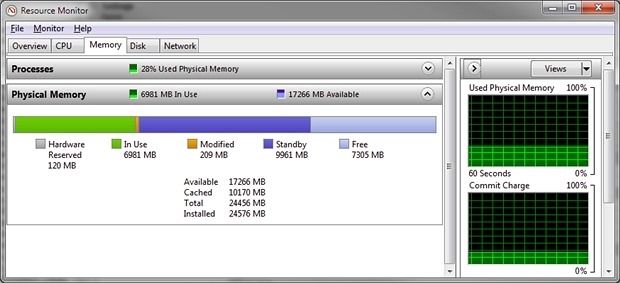Having a computer with a hefty amount of RAM is a wonderful thing, but is it potentially faster if all of that memory is not usually in use? Today's SuperUser Q&A post has the answers to a curious reader's question.
Today’s Question & Answer session comes to us courtesy of SuperUser—a subdivision of Stack Exchange, a community-driven grouping of Q&A web sites.
Photo courtesy of Daniel Dionne (Flickr).
The Question
SuperUser reader Keavon wants to know if a computer with more RAM would be faster if all of its memory was not normally in use:
Suppose I have a computer with 16 GB of memory. If my computer is usually using about 4 GB of memory and never reaches 8 GB, is it any faster than a computer with only 8 GB of (the same type of) memory? Would my computer run as equally fast by removing half of the 16 GB and working with only 8 GB or memory?
Would Keavon notice a difference in performance if he removed half of the RAM from his computer?
The Answer
SuperUser contributors Wyzard and Jason have the answer for us. First up, Wyzard:
Yes, because the operating system can use the extra RAM as disk cache, which speeds up access to data on the disk. Extra RAM will not make CPU-bound computations (not involving much disk I/O) faster though.
Followed by the answer from Jason:
Since every operating system manages memory differently, and none was listed in the original question, I will answer in the context of Windows 7.
Below is an example from a computer with 24 GB of RAM. Even though only 7 GB is currently allocated as "In Use" memory, another 10 GB is allocated as "Standby" memory and contains data that may or may not be read again. If it is read, it will make your computer faster. The "Free" memory is not being utilized whatsoever at the moment.
- "Available" memory includes Standby and Free
- "Cached" memory also includes Standby and Modified
- "Total" memory is all memory except Hardware Reserved
If you would like to learn more about memory usage in Windows 7, TechRepublic has a great article.
Have something to add to the explanation? Sound off in the comments. Want to read more answers from other tech-savvy Stack Exchange users? Check out the full discussion thread here.


